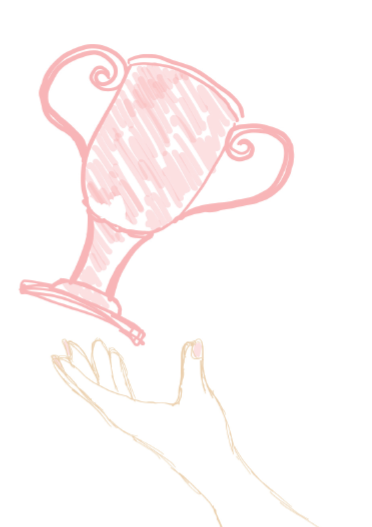Erin McDermott had big shoes to fill when she took the position as the John D. Nichols ’53 Director of Athletics in May 2020. She replaced Robert L. Scalise, who had held the position since 2001. But the Hofstra University basketball star was unfazed. For the nine years before stepping into her Harvard role, McDermott served as the leader of the University of Chicago Athletics Department, which, under her tenure, proved extremely successful. Her success did not go unnoticed, as she was the winner of the 2019 National Association of Collegiate Directors of Athletics’ Assistant Director of the Year Award. Assuming her position at Harvard, McDermott is not only the College’s first new Athletic Director in 20 years, but also the first-ever female director of Harvard Athletics.

Despite her vast experience in the field of athletic administration, McDermott wasn’t exactly stepping in at the easiest moment—most athletic administrators don’t have to wrestle with a pandemic on their first day. “We are operating so differently than any of us are used to,” she admits. “We have to do this in a very challenging environment with disappointment and confusion.” McDermott’s basketball days have prepared her for challenges, and taught her how to overcome them. She knows that each day isn’t easy, having come to understand that “we’re not going to succeed every time we try to do everything,” and that adaptation is key to long-term success.
In a position and career that revolves around cooperation, precision, and coordination, playing basketball taught McDermott another skill that has proved extremely valuable: balance. “I’ve been intentional with how I’ve used my time” to connect with faculty and students throughout the period, the Athletic Director says about trying to “build relationships, trust, and credibility” in a new environment. Spending many of her hours on Zoom each day, McDermott admits she shares the pandemic frustration felt by many people whose lives and work typically depend on in-person contact and communication. But to form crucial relationships between athletes and administrators during this time, Zoom is the necessary medium.
With her newcomer status and desire to establish these connections, McDermott is determined in her goals for Harvard Athletics. “We want to honor that [athletes] are not just athletes,” she says, but “full people who come to [Harvard] in many different forms and fashions.” McDermott wants athletic policies and initiatives to recognize the diversity of student-athletes, and she plans to “work with our spaces” so that athletes can “feel proud of where [they] train and compete.” The Athletic Director has big plans for Harvard’s facilities in the next few years—plans she hopes will ultimately elevate Harvard’s involvement in conference championships and its teams’ national placements from recent years.
Just as she is committed to her ambitions for Harvard Athletics, McDermott is also committed to the impact she might already be having on its athletes. Since her hiring, the Ivy League has reached the milestone of half of its Athletic Directors being women. “I take these facts very seriously. I consider it a great responsibility that I hold,” she says. “There are a lot of great women in the Ivy League and beyond who recognize this responsibility.” In contemplating what it means for her to enter this role, she looks to the generation that came before her, expressing “gratitude to the women who paved the way”—the trailblazers that came after Title IX and proved that women belong in and around sports.
Parallelling her predecessors, McDermott hopes to inspire women in Harvard Athletics. “I hope that I am actually a role model in how I behave and serve student-athletes and that they can see me and understand that they can pursue the paths that call to them, even if women aren’t currently in those positions,” she shares. While motivating women to pursue their dreams, McDermott wants to be “a model for leadership, regardless of a similarity or not in leadership, and regardless of gender.”
Sofia Castore ’24, a member of the Field Hockey team, feels this motivation. “It’s just nice to see representation in high-up positions that have confronted and had to deal with similar problems [as] female athletes.” Castore hopes that McDermott will bring with her “more hype around women’s sports,” increasing the attendance at competitions and encouraging women at Harvard to feel comfortable in the athletic arena.
Eleanor Wikstrom ’24 from the Cross-Country and Track & Field teams, has similar desires out of athletic leadership. “I’m excited to see Director McDermott increase not only the visibility of women in sports but also our tangible decision-making power in a field that has historically been neglectful, if not openly hostile, towards women,” says Wilkstrom. Her excitement comes with a level of caution: “I am hopeful that Director McDermott will be judged by her work not as a female Director of Athletics—or any other mode of framing that attaches her impact to a limiting qualifier word or phrase—but as a Director of Athletics, period.”

McDermott expects nothing less than that. “Harvard Athletics will continue to live in the values of education through athletics,” she anticipates. “We want to represent excellence in how we compete and represent ourselves. Success is something we should aspire for, and it isn’t mutually exclusive from excelling in every other aspect of life at Harvard.” For McDermott, excellence is the standard: in scholarship, in athletics, in character, and in leadership. And why shouldn’t it be? That’s the standard at which she has worked and will continue to work.
Oliver Adler ’24 (oliveradler@college.harvard.edu) is excited for the future of Harvard Athletics.

